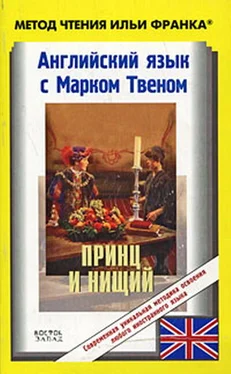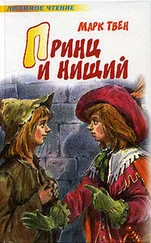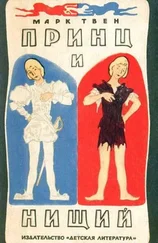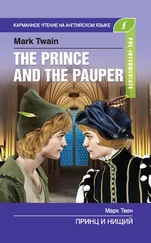accomplishment [ə`kAmplıʃmənt], (re)capture [(rı)`kæptʃə], staff [sta:f]
MILES Hendon hurried along toward the Southwark end of the bridge, keeping a sharp lookout for the persons he sought, and hoping and expecting to overtake them presently. He was disappointed in this, however. By asking questions, he was enabled to track them part of the way through Southwark; then all traces ceased, and he was perplexed as to how to proceed. Still, he continued his efforts as best he could during the rest of the day. Nightfall found him leg-weary, half famished, and his desire as far from accomplishment as ever; so he supped at the Tabard inn and went to bed, resolved to make an early start in the morning, and give the town an exhaustive search. As he lay thinking and planning, he presently began to reason thus: The boy would escape from the ruffian, his reputed father, if possible; would he go back to London and seek his former haunts? No, he would not do that, he would avoid recapture. What, then, would he do? Never having had a friend in the world, or a protector, until he met Miles Hendon, he would naturally try to find that friend again, provided the effort did not require him to go toward London and danger. He would strike for Hendon Hall, that is what he would do, for he knew Hendon was homeward bound, and there he might expect to find him. Yes, the case was plain to Hendon — he must lose no more time in Southwark, but move at once through Kent, toward Monk's Holm, searching the wood and inquiring as he went. Let us return to the vanished little king now.
The ruffian, whom the waiter at the inn on the bridge saw 'about to join' the youth and the king, did not exactly join them, but fell in close behind them and followed their steps. He said nothing. His left arm was in a sling, and he wore a large green patch over his left eye; he limped slightly, and used an oaken staff as a support. The youth led the king a crooked course through Southwark, and by and by struck into the highroad beyond. The king was irritated now, and said he would stop here — it was Hendon's place to come to him, not his to go to Hendon. He would not endure such insolence; he would stop where he was. The youth said:
'Thou'lt tarry here, and thy friend lying wounded in the wood yonder? So be it, then.'
The king's manner changed at once. He cried out:
'Wounded? And who hath dared to do it? But that is apart; lead on, lead on! Faster, sirrah! art shod with lead? Wounded, is he? Now though the doer of it be a duke's son, he shall rue it!'
It was some distance to the wood (было = оставалось некоторое расстояние до леса), but the space was speedily traversed (но это расстояние было скоро преодолено). The youth looked about him (юноша посмотрел вокруг себя = огляделся), discovered a bough sticking in the ground (обнаружил сук, воткнутый в землю), with a small bit of rag tied to it (с небольшим куском лохмотьев, привязанным к нему), then led the way into the forest (затем повел путь = пошел и повел за собой в лес), watching for similar boughs and finding them at intervals (ища похожие сучья и находя их через интервалы = регулярно); they were evidently guides (они были очевидно указателями) to the point he was aiming at (к месту, куда он стремился; to aim — целиться). By and by an open place was reached (вскоре открытое место было достигнуто), where were the charred remains of a farmhouse (где находились обуглившиеся остатки фермерского дома), and near them a barn (а около них — сарай) which was falling to ruin and decay (который падал в руины и ветхость = разрушался и ветшал). There was no sign of life anywhere (не было никакого знака жизни где-либо), and utter silence prevailed (и полная тишина царила). The youth entered the barn (юноша вошел в сарай), the king following eagerly upon his heels (король следующий пылко на его пятках = близко за ним). No one there (никого там)! The king shot a surprised and suspicious glance at the youth (король бросил удивленный и подозрительный взгляд на юношу; to shoot — стрелять, бросать), and asked (и спросил):
'Where is he (где он)?'
A mocking laugh was his answer (издевательский смех был ему ответом). The king was in a rage in a moment (король пришел в ярость немедленно); he seized a billet of wood (он схватил полено) and was in the act of charging upon the youth (и был в действии нападения на юношу = и как раз собирался напасть на юношу) when another mocking laugh fell upon his ear (когда другой издевательский смех упал на его ухо = послышался; to fall — падать). It was from the lame ruffian (он исходил от хромого негодяя), who had been following at a distance (который следовал на расстоянии). The king turned and said angrily (король обернулся и сказал сердито; to say — сказать):
'Who art thou (кто ты)? What is thy business here (какое твое дело здесь)?'
'Leave thy foolery (оставь свои дурачества; fool — дурак; глупец; болван),' said the man (сказал человек), 'and quiet thyself (и успокойся; to quiet — успокаивать). My disguise is none so good (моя маскировка не так хороша) that thou canst pretend (чтобы ты мог притворяться) thou knowest not thy father through it (что ты не узнаешь своего отца сквозь нее).'
'Thou art not my father (ты не мой отец). I know thee not (я не знаю тебя). I am the king (я король). If thou hast hid my servant (если ты скрыл моего слугу; to hide — прятать(ся)), find him for me (найди его для меня), or thou shalt sup sorrow (или ты хлебнешь горя) for what thou hast done (за то, что ты сделал).'
John Canty replied (Джон Кэнти ответил), in a stern and measured voice (суровым и размеренным голосом; measure — мера; to measure — мерить):
'It is plain thou art mad (ясно, что ты сумасшедший), and I am loath to punish thee (и я несклонен наказывать тебя); but if thou provoke me, I must (но если ты спровоцируешь меня, я должен = должен буду это сделать). Thy prating doth no harm here (твоя болтовня не делает никакого вреда здесь; to prate — болтать, трепаться, нести чепуху), where there are no ears (где нет ушей) that need to mind thy follies (которым нужно обижаться на твои безумства), yet is it well to practise thy tongue to wary speech (и все же хорошо упражнять твой язык в осторожной речи), that it may do no hurt (чтобы она не причинила никакого вреда) when our quarters change (когда наше обиталище сменится). I have done a murder (я совершил убийство), and may not tarry at home (и не могу задерживаться дома) — neither shalt thou (не будешь и ты), seeing I need thy service (видя, что мне нужна твое обслуживание = помощь). My name is changed (мое имя изменено), for wise reasons (по мудрым причинам); it is Hobbs (оно — Хоббс) — John Hobbs (Джон Хоббс); thine is Jack (твое — Джек) — charge thy memory accordingly (заряди свою память = запомни соответственно). Now, then, speak (теперь, раз так, говори). Where is thy mother (где твоя мать)? Where are thy sisters (где твои сестры)? They came not to the place appointed (они не пришли к месту назначенному; to come — приходить) — knowest thou whither they went (знаешь ли ты, куда они пошли; to go — идти)?'
Читать дальше
Конец ознакомительного отрывка
Купить книгу




![Марк Твен - Принц и нищий [Издание 1941 г.]](/books/148799/mark-tven-princ-i-nichij-izdanie-1941-g-thumb.webp)







